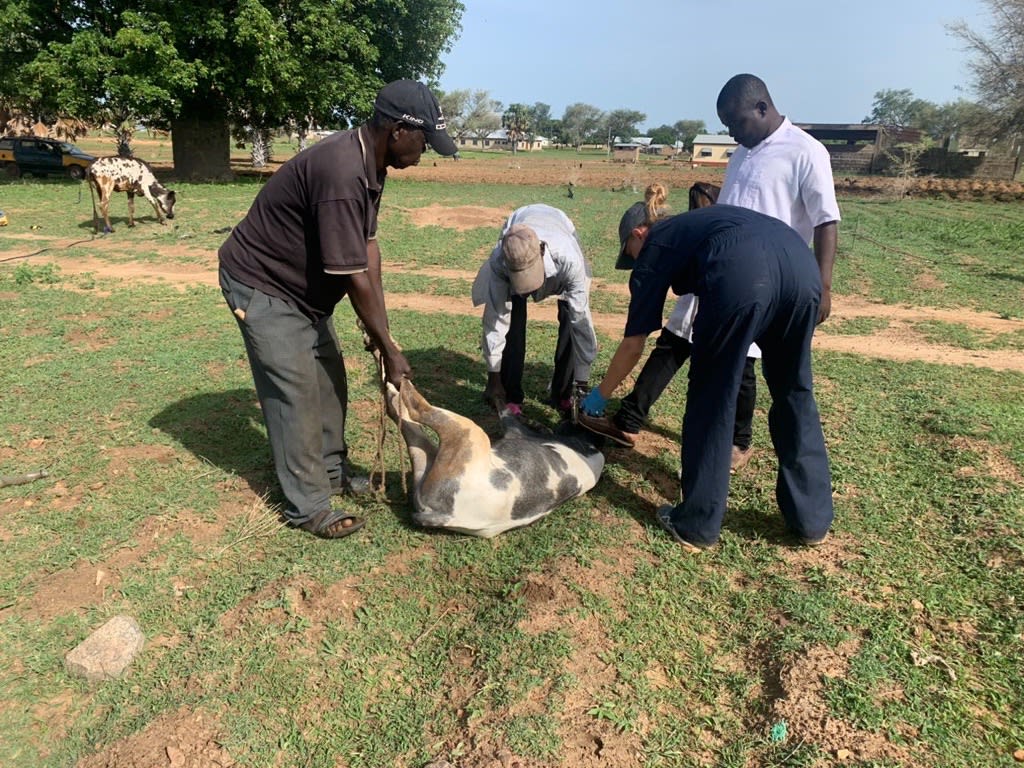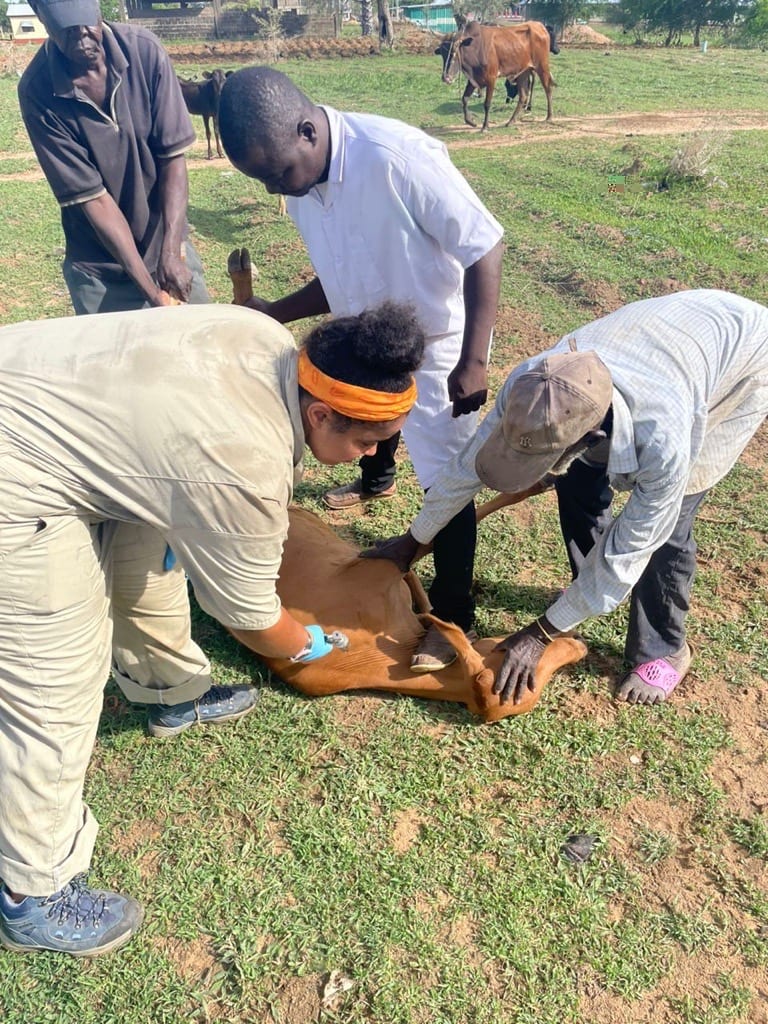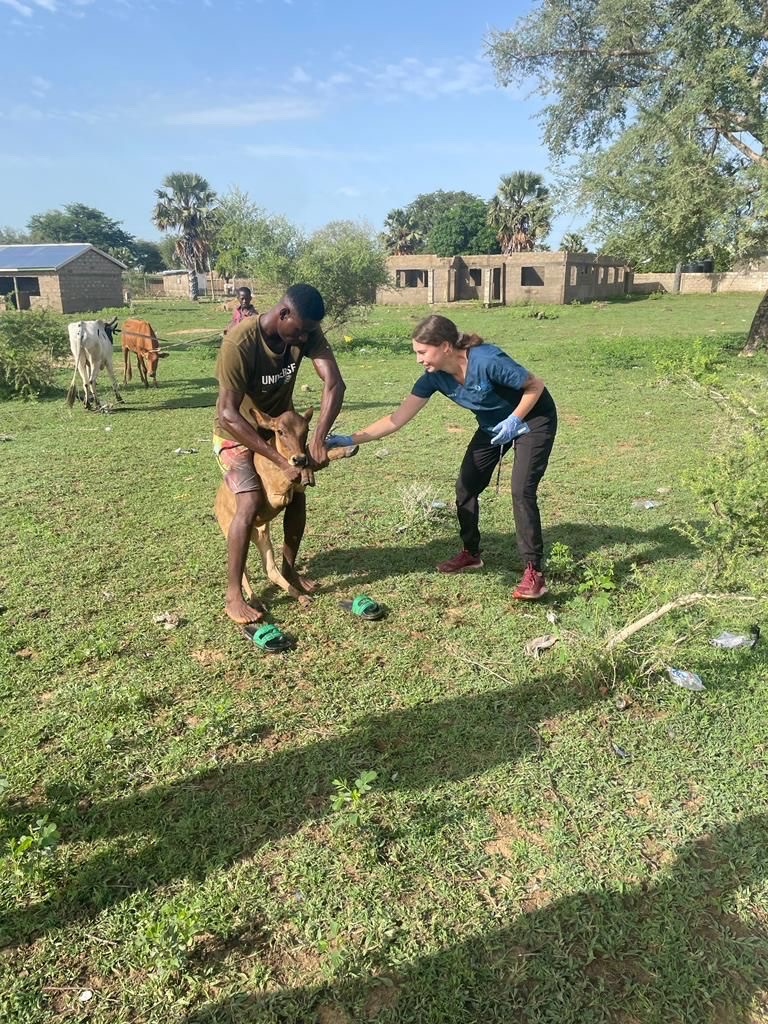Promoting One Health, (healthy animals, healthy people, and a healthy environment), is key throughout Veterinarians Without Borders'/Vétérinaires Sans Frontières' (VWB/VSF) programs. Across Sub-Saharan Africa and Southeast Asia, VWB/VSF is working with local partners to vaccinate farm animals across various diseases — including zoonotic diseases that can spread from animals to humans, (e.g., COVID-19, rabies, anthrax). Recently, VWB/VSF's VETS volunteers, members of our Young Volunteer Program, joined our on-the-ground partner in Ghana, GAPNET, along with the Veterinary Service Department, to complete an anthrax vaccination campaign in Bolgatanga in the Upper East region of Ghana. Our VETS program is generously funded by Global Affairs Canada.
Marley (far right), VWB/VSF VETS volunteer, helping to vaccinate cattle against anthrax in Ghana
In Africa, where livestock plays a crucial role in the lives and livelihoods of many communities, ensuring the health and well-being of farm animals is of utmost importance. The spread of anthrax is one significant threat that demands attention, as it's a highly contagious and often fatal zoonotic disease affecting both animals and humans. To combat the spread of this devastating disease, vaccination campaigns have emerged as vital interventions and ways of preventing mass health and economic risks.
Anthrax is caused by the spore-forming bacterium Bacillus anthracis. While primarily affecting animals, it can be transmitted to humans through direct contact with infected animals or contaminated animal products. The consequences can be severe, including severe illness and even death. By immunizing farm animals against anthrax, we can create a protective barrier that not only safeguards animal health but also mitigates the potential human health implications.

Keisha (far left), VWB/VSF VETS volunteer, helping to vaccinate goats against anthrax in Ghana
Our volunteers' assistance in a recent vaccination campaign was in response to recent anthrax outbreaks that have occurred in several areas across northeastern Ghana. The team helped local teams vaccinate sheep, goats, and cattle through the use of a vaccine gun. By reaching out to these remote areas and working with local community members, the campaign was able to provide a wide-scale response to the urgent need for anthrax control. This hands-on experience is not only beneficial to communities, but also equips volunteers with valuable skills, enabling them to contribute effectively to future vaccination campaigns and disease control efforts.

Sandra (far right), VWB/VSF VETS volunteer, helping to vaccinate cattle against anthrax in Ghana
The recent anthrax vaccination campaign is just one reminder of the critical role played by farm animal vaccination programs in Africa. By vaccinating animals, we not only protect their health and well-being but also prevent the transmission of this dangerous disease to humans. Collaboration between veterinary services, volunteers, and local communities is vital to ensuring the success of such campaigns. Through proactive interventions and community engagement, we can make significant progress in stopping the zoonotic spread of anthrax and safeguarding the health and prosperity of African communities, and beyond.
Learn more about becoming a volunteer and helping strengthen the health of communities and animals.




